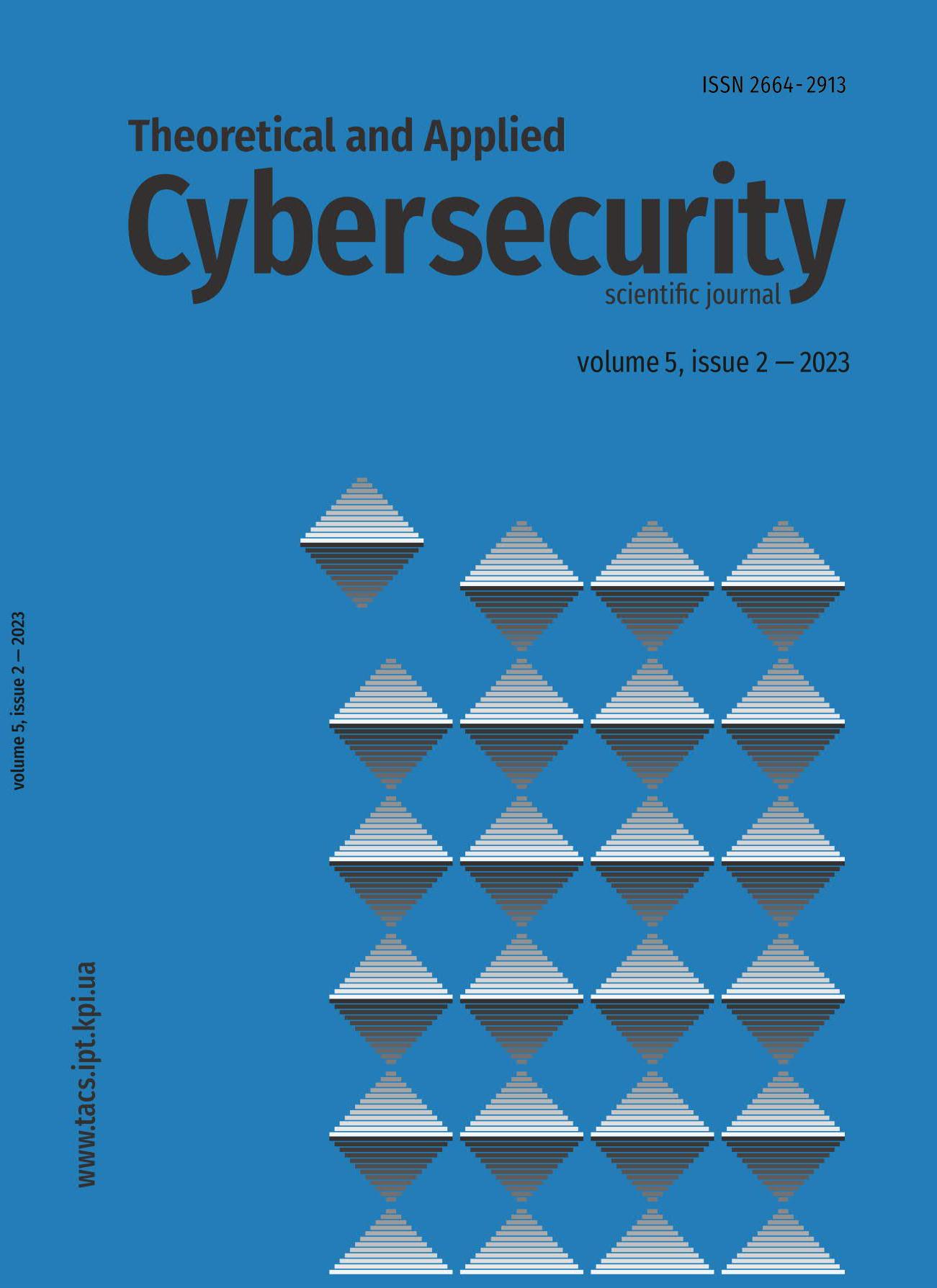The Development of the Solution Search Method Based on the Improved Bee Colony Algorithm
DOI:
https://doi.org/10.20535/tacs.2664-29132023.2.278199Abstract
Active digitization of people's daily life leads to the use of the decision making support systems (DMSS). DMSS is actively used in data processing, forecasting the course of various processes, providing informational support for the decision making process by decision makers. However, a number of problems arise while evaluating monitoring objects, namely: a large number of destabilizing factors affecting the efficiency of the processes of information collection, processing and transmission; high dynamism of changes in the state and composition of heterogeneous monitoring objects during the conduct of hostilities (operations); high dynamism of conducting hostilities (operations); the uncertainty of the initial situation and the noise of the initial data. In this article, a method of finding solutions based on an improved bee colony algorithm was developed.
The efficiency of information processing is achieved by learning the architecture of artificial neural networks; taking into account the type of uncertainty of the information to be evaluated; the use of an improved algorithm of the bee colony, the use of an unordered linguistic scale of measurements with adjustment coefficients for the degree of awareness and the degree of noise of the initial data. An approbation of the use of the proposed method was carried out on the example of assessing the state of the operational grouping of troops (forces). The method is proposed to be used in the development of software for automated systems of control of troops and weapons, namely, in the modernization of existing and development of new automated systems of control of troops and weapons. The evaluation of the effectiveness of the proposed method showed an increase in the efficiency of the evaluation at the level of 21–28% in terms of the efficiency of information processing.
Downloads
Published
Issue
Section
License
Authors who publish with this journal agree to the following terms:
Authors retain copyright and grant the journal right of first publication with the work simultaneously licensed under a Creative Commons Attribution License that allows others to share the work with an acknowledgement of the work's authorship and initial publication in this journal.
Authors are able to enter into separate, additional contractual arrangements for the non-exclusive distribution of the journal's published version of the work (e.g., post it to an institutional repository or publish it in a book), with an acknowledgement of its initial publication in this journal.
- Authors are permitted and encouraged to post their work online (e.g., in institutional repositories or on their website) prior to and during the submission process, as it can lead to productive exchanges, as well as earlier and greater citation of published work (See The Effect of Open Access).

